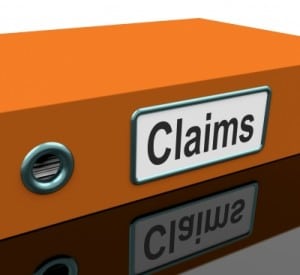Every year, millions of people buy insurance policies to protect their homes or automobiles from damage, but that doesn’t always mean that it is in the insured’s best interest to report a claim. Coming from an insurance agency, that might sound a bit odd. But, filing a claim can have a huge impact on your insurance rates, even if the accident or damage was minor or not your fault.
While there is no rulebook to filing claims, we’ve come up with a few scenarios to give you a better idea of when filing, or not filing, a claim is your best interest.
When you should NOT file a claim:
1. If you have multiple moving violations on your record. Where auto insurance is concerned, many carriers look at driving violations AND the number of past auto claims when preparing a quote or considering your renewal. If the claim you are wanting to report is minor or something that can be avoided all together, consider handling the costs on your own to keep your discounts and keep premiums low.
2. If the claim amount is close to the deductible amount. If your policy has a $500 deductible, you might not want to bother filling a $600 claim, as you will only profit $100, and the claim could count against you one day in the eyes of your insurance carrier.
3. If your teen driver has a minor accident. Auto insurance for teenagers is already expensive, and filing a claim for something minor like your teen bumping another vehicle in a parking lot would only increase their insurance costs. If possible, consider paying out of pocket for any damage to avoid increased insurance premiums.
When you SHOULD file a claim:
1. If injuries are involved. To avoid an injury lawsuit, report your claim if there is a chance someone else involved in the incident could claim they were injured.
2. If there is fire damage to your home. Fires that damage but do not completely destroy a home create special insurance claims issues. Often, the cause of a house fire is unknown, so it is important to get your insurance carrier involved at the start of the claims process. If there is any possibility that a third party may be held responsible, your insurance carrier will have to preserve the scene until all parties can do a joint inspection.
When in doubt, you can always call your agent to discuss your individual situation. If you would like more information about this topic from one of our Starke agents, call us today or complete one of our free, no obligation quote forms to speak with one our agents about any of your insurance needs.


